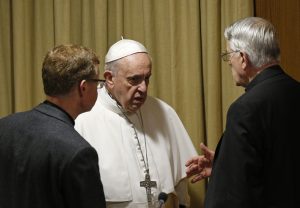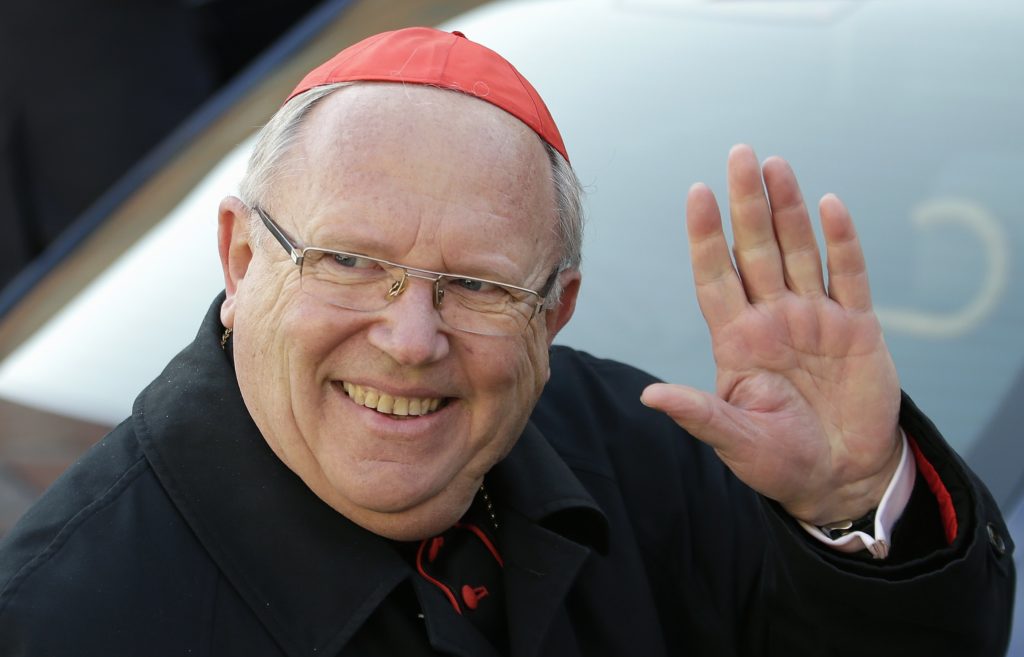ROME — Just two weeks after the Vatican published a document acknowledging the damage inflicted on the Catholic Church’s credibility by abuse scandals, another blow landed.
Earlier this week, French Cardinal Jean-Pierre Ricard, the retired Archbishop of Bordeaux, admitted to having “behaved in a reprehensible way” with a 14-year-old girl more than 30 years ago, when he was still a priest in his native city of Marseille.
The 78-year-old’s admission comes on the heels of an independent report estimating that some 330,000 children had been sexually abused over a 70-year period by priests or other Church representatives in France, such as scout leaders and camp counselors.
That report also described what it said was a “systemic” cover-up by Church officials and urged greater adherence to the law.
Cardinal Ricard, who once led the French bishops’ conference, said he will be withdrawing from his religious duties in the wake of the announcement. The Marseille prosecutor’s office has since opened a preliminary investigation for “aggravated sexual assault” into the cardinal.
The same day as the Cardinal Ricard announcement, France’s bishops revealed that a total of 11 bishops and former bishops, including Cardinal Ricard, have been targeted by accusations in relation with sex abuse in diverse cases investigated by French justice or Church authorities.
The cardinal’s confession has been met with shock and disgust in France and in Church circles. Particularly scandalous was Cardinal Ricard’s past membership of the Congregation (recently renamed “Dicastery”) for the Doctrine of the Faith, which makes determinations on clerical abuse cases.
Cardinal Ricard is not the first French prelate to become mired in controversy recently. Former Paris Archbishop Michel Aupetit resigned in late 2021 after a magazine published evidence suggesting a romantic relationship with a woman a decade ago. Last month, the Diocese of Créteil confirmed that Bishop Michel Santier, who retired in 2021 (officially for “health reasons”) had been credibly accused of sexual misconduct and sanctioned by the Vatican. Meanwhile, several French dioceses either have recently experienced or are currently undergoing apostolic visitations.
Across the Rhine, the pope accepted the resignation Nov. 8 of Bishop Johannes Bündgens, 66, the auxiliary bishop of Aachen, Germany, after he was convicted of stealing around $128,000 from an elderly acquaintance believed to have been suffering from dementia.

Yet while all of this shows the long way left to go for the Catholic Church in tackling sexual abuse within its ranks, it also signals progress.
Until very recently, the Catholic Church’s modus operandi was to instinctively defend clerics against such allegations, and seeing a bishop or even a cardinal in the hot seat was practically unthinkable — not to mention seeing one own up, and even embrace the consequences of his actions.
To date, there has only been one known case in which the pope defrocked a cardinal accused of sexual abuse: former Cardinal Theodore McCarrick, who was laicized in 2019 after allegations of sexual abuse against adults and minors that arose a year prior were substantiated.
Several years ago, Pope Francis removed the rights and privileges of the late Scottish Cardinal Keith O’Brien after he was accused of misconduct with adults, but he was not defrocked.
What fate awaits Cardinal Ricard is unknown. The Vatican typically awaits the ruling of civil authorities on such cases before taking their own action. But Cardinal Ricard’s case is slightly different, since he admitted his wrongdoing.
Since convoking a global summit on child protection in February 2019, the Vatican has issued legislation ordering mandatory reporting for not only priests, but also bishops accused of abuse or cover-up. His Commission for the Protection of Minors has been working with dioceses and bishops’ conferences throughout the world on drafting and implementing safeguarding guidelines.
But perhaps more importantly, the long-standing taboo around abuse in the Church is slowly beginning to dissipate, even among members of the hierarchy: the fact that another “Prince of the Church” has freely admitting wrongdoing and accepting the consequences is no small step forward.
As scandals continue to come out, they will always represent a terrible failure on the part of the Church and its representatives, especially for the victims, but there is also a case for hope, in that however painful it may be, Church leaders might finally be more willing to take responsibility for their failures and wrongdoings.

